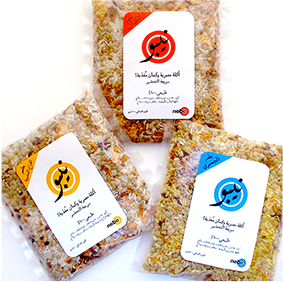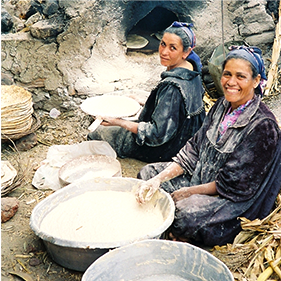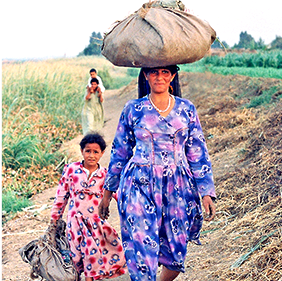
Egypt’s two revolutions in 2011 and 2013 have had a profound impact on the nation’s economy. The population is dealing with a steady rise in the cost of food, with the exception of three subsidized staples, namely, bread, sugar and cooking oil. The uptick in food prices, which has affected essentials like dairy products and fava beans, a country staple, has most severely impacted the poorer half of the population, who live on about $2 per day. Because a mother’s focus is primarily on keeping the family from going hungry, very little attention is paid to the nutritious value of the food consumed — many adults and children only eat the subsidized bread. The need is not just to feed the hungry but to also cover the nutritional deficiencies in poorer families.
Women in Egypt face ongoing challenges due to a culture that frequently marginalizes and discriminates against them. In poorer communities, a high percentage of women support their husbands and children — they are the sole breadwinners in the home. Despite undertaking such a critical role, they are hard-pressed to find gainful employment or other reliable ways to provide for their families. They need solid, continuous opportunities to generate an income so their children can receive the most basic of needs like food, shelter, education and a safe environment in which to create a future for themselves.
The greater the poverty, the greater the need to learn basic life and work skills. Generally, there is little or no emphasis on underprivileged women’s formal education (many are kept from going to school or forced to drop out at a young age), let alone emotional training or behavioral modeling. Generations of dysfunctional families have severely hampered poorer women’s abilities to grow as individuals, wives, mothers and contributors to society. They need help to learn in practical and relevant ways to create and pursue personal goals, work successfully, manage their finances, and relate to their immediate families and communities in a healthy way.



Global Bounty makes nutrient-dense food mixes available at nominal prices to underprivileged, women-led households in Egypt. The ingredients in these mix bags are based on what research reveals are the main vitamin and mineral deficiencies in the Egyptian diet. Each bag constitutes a single, nutritious meal for a family of up to five people.
The product was developed with the help of nutrition experts and is distributed under the registered trademark, Nebo. Core components of each mix are rice, lentils, dried vegetables, spices, chicken broth and special flavoring that appeals to local tastes. A typical Nebo mix provides up to ten essential vitamins and minerals. Nebo is sourced locally to help Egyptian farmers and merchants, is packaged locally, and is distributed through our network of working women using a simple business model (see below).
To help create income-producing opportunities for underprivileged women, Nebo food mix bags are distributed to pre-screened program participants as a small loan. Recipients are required to have participated successfully in other microfinance programs and to possess a basic aptitude for working a micro business. Participating women acquire Nebo bags to sell at affordable prices to families in their community, making a small profit. They can then pay back their loans in cash or acquire more Nebo bags to sell. Their network of buyers is made up of women and families in their own communities — the very people who struggle to secure affordable food.
As participating women develop their life and work skills (see below), they are encouraged and coached to grow their micro projects into small businesses that provide work opportunities for young men and women in their immediate communities.
Women participating in Nebo food mix sales and distribution will be offered a unique life skills training program. The curriculum uses short, award-winning drama films to present key principles and trainer-guided discussions among the participants to help them gain understanding and arrive at their own conclusions for life application. The result is learning by personal discovery, as opposed to learning by mere delivery of content.
Working with mostly illiterate women in a culture that prizes good storytelling, each watch-and-discuss principle is easy to grasp and fully relevant to the participants’ lives and experiences. The topics are tailored to their needs and include: personal identity, self worth, developing healthy relationships, overcoming co-dependency, fighting abuse, breaking harmful generational patterns of behavior, managing money, improving health and hygiene, and more.